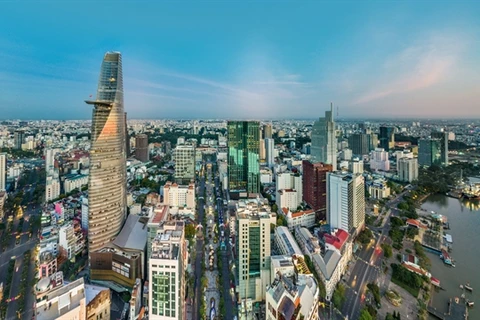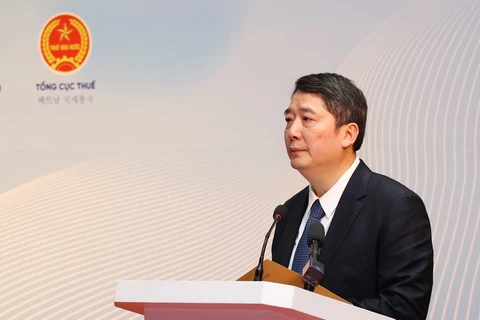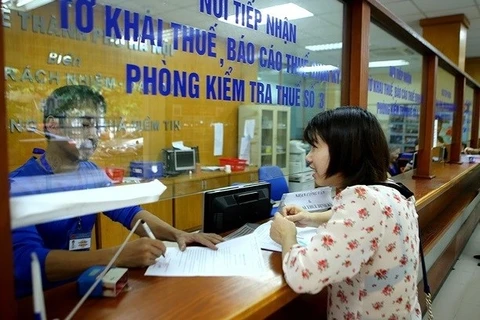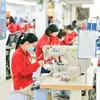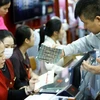 The Ministry of Finance is drafting amendments to the Law on Value Added Tax which will be proposed to the National Assembly for consideration in the 7th meeting in May this year. (Photo: VNA)
The Ministry of Finance is drafting amendments to the Law on Value Added Tax which will be proposed to the National Assembly for consideration in the 7th meeting in May this year. (Photo: VNA) The Ministry of Finance is drafting amendments to the Law on Value Added Tax which will be proposed to the National Assembly for consideration in the 7th meeting in May this year.
In the draft, the ministry wants to impose VAT on most exported services, instead of the zero rate as currently.
Specifically, only international transportation and vehicle rental outside Vietnam and some related services are proposed to be maintained at zero tax rates, while others will be subject to VAT rate, commonly at 10%.
The reason for the amendment is that tax authorities found it difficult to distinguish between revenues from exported services and from domestically consumed.
VCCI said that the imposition of 10% VAT rate when exporting will make it difficult for Vietnamese services providers to compete with foreign rivals.
International trade of services increased strongly in the global market during the past two decades and is forecast to remain robust in coming years, along with the vibrant development of Internet and remote work solutions, VCCI said, citing statistics of the World Bank that global export of services jumped from 400 billion USD in 1980s to more than 7.2 trillion USD in 2022, with an average annual growth rate of 6.5% from 2003 to date.
The international transportation service accounts for a significant proportion but it is dropping, from 30% in 1982 to 17% in 2020, while telecommunications and IT services are rising.
Statistics showed that global telecommunications and IT services export is expanding at 12.3% annually on average from 2004. The rate has been rising more rapidly since the COVID-19 pandemic.
According to the VCCI services export has huge potential for development. Vietnam’s export of services reached 20 billion USD in 2023 with an average annual growth rate of 11%, higher than the country’s gross domestic growth rate. Vietnam is running a trade deficit of services worth more than 10 billion USD each year.
Providing exported services does not require huge capital like investing in manufacturing and processing industry, which is appropriate in a capital-shortage economy like Vietnam.
In addition, Internet-based services export helps promote the country’s image and increase “soft power”, VCCI said.
Vietnam is an export-oriented economy with export being an important growth driver with an average annual growth rate of nearly 15%, VCCI said, emphasising that zero VAT on exported services plays a significant role.
According to VCCI, most countries around the world are imposing zero VAT on exported services and allow tax refunds on inputs.
Thus, VAT on exported services should be kept at zero, VCCI said.
Major exporting services of Vietnam include manufacturing outsource, maintenance and repairing, tourism and transportation, insurance, financial services, IT and information services./.
VNA

